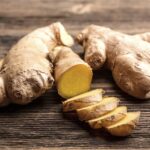Are you experiencing frequent constipation? Have you tried every over-the-counter laxative on the market with little to no relief? The solution may be simpler than you think – your diet.
Constipation is a common condition that affects millions of people worldwide. It can cause discomfort, bloating, and even lead to more severe health issues if left untreated. While there are various causes of constipation, the diet we consume plays a significant role in our digestive health.
So, what is the link between diet and constipation? Let’s break it down.
Lack of fiber
Fiber is essential for maintaining healthy bowel movements. It adds bulk to our stool, making it easier to pass through our digestive system. A diet that lacks fiber can slow down the digestive process, leading to constipation. Incorporating fiber-rich foods such as fruits, vegetables, whole grains, and legumes can help alleviate constipation.
Dehydration
Water is crucial for proper digestion and bowel movements. When we don’t drink enough water, our stools can become hard and difficult to pass. It’s recommended to drink at least eight glasses of water a day to maintain proper hydration and prevent constipation.
Processed foods
Processed foods are high in fat, sugar, and salt, which can slow down our digestive system. Additionally, they lack the necessary nutrients and fiber needed for healthy bowel movements. Eating a diet high in processed foods can lead to chronic constipation.
Lack of physical activity
Physical activity is essential for maintaining healthy bowel movements. Exercise stimulates the muscles in our digestive system, helping to move stool through our intestines. A sedentary lifestyle can lead to constipation and other digestive issues.
In conclusion, our diet plays a significant role in our digestive health. Incorporating fiber-rich foods, drinking enough water, avoiding processed foods, and staying physically active are all essential for preventing and treating constipation. If you’re experiencing chronic constipation, it’s recommended to speak with a healthcare provider to determine the underlying cause and develop an appropriate treatment plan.
Don’t let constipation control your life. Take control of your diet and prioritize your digestive health for a happier, healthier you.




